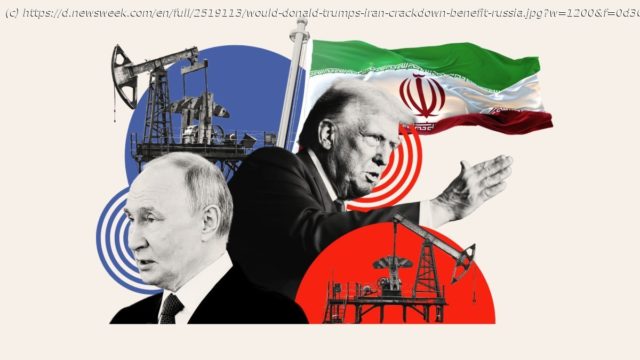Trump is likely to reimpose sanctions on the Islamic Republic with the aim of choking off oil revenues.
Even before Donald Trump named Elise Stefanik the new U.S. ambassador to the United Nations, the New York representative had touted how the president-elect would return to a « maximum pressure » campaign on Iran.
The Wall Street Journal said Trump would « drastically increase » sanctions to « choke off » Iran’s oil income, which the U.S. Energy Information Administration reported last month reached $144 billion between 2021 and 2023 and $34 billion in 2024.
But could Trump’s alignment with Israel and intention to throttle the Islamic Republic’s exports of 1.7 million barrels of oil a day impact Russia’s sales of its key revenue generator? Factors that will come into play include how Middle East tensions play out.
« When Trump enforces the sanctions, Iran will retaliate to demonstrate that if it is not allowed to generate oil revenue and conduct commerce, then other countries in the region may not be able to either », Matt Gerken, chief strategist, geopolitical and U.S. political strategy at BCA Research, told Newsweek.
« I think we’ll see some surprise events, maybe some sabotage or some attacks that threaten—but not devastate—global oil supply from the region. »
Trump’s expected new secretary of state, Florida Senator Marco Rubio, is also hawkish, saying Israel has the « right to respond disproportionately to stop » the threat posed by Tehran and its proxies, which include Hamas in Gaza and Hezbollah in Lebanon.





